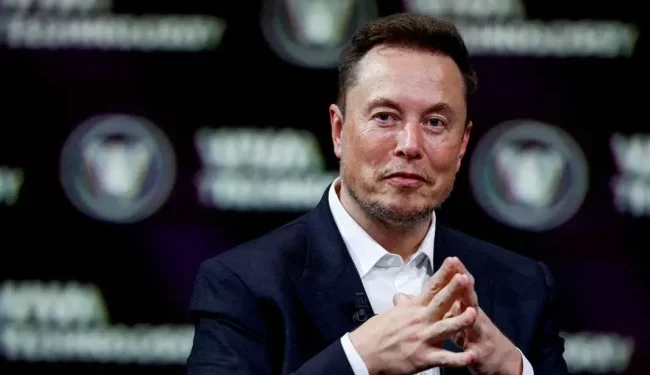Elon Musk has suggested that all users of X, formerly called Twitter, may have to pay for access to the platform.
In a conversation with Israeli Prime Minister Benjamin Netanyahu, the billionaire said a payment system was the only way to counter bots.
“We’re moving to having a small monthly payment for use of the system,” the Tesla and SpaceX boss said.
The BBC approached X for further details but has not yet received a statement from the company.
It is unclear whether this was just an off-the-cuff comment or a signal of firmer plans that have yet to be announced.
Mr Musk has long said that his solution for getting rid of bots and fake accounts on the social media platform is to charge for verification.
Since taking over Twitter last year, he has looked to incentivise users to pay for an enhanced service, which is now called X Premium.
This has been done by giving paid subscribers more features, like longer posts and increased visibility on the platform.
However, users can currently still use X for free.
Although there is a clear financial interest for the company to charge users, Mr Musk insisted that getting people to pay for the service is aimed at tackling bots.
“A bot costs a fraction of a penny” to make, he said. “But if somebody even has to pay a few dollars or something, some minor amount, the effective cost to bots is very high”.
X Premium currently costs $8 (£6.50) a month in the US. The price differs depending on which country a subscriber is in.
The world’s richest person said that he was now looking at cheaper options for users.
“We’re actually going to come up with lower-tier pricing. So we just want it to be a small amount of money,” he said.
“This is a longer discussion, but in my view, this is actually the only defence against vast armies of bots,” Mr Musk added.
However, a risk is that by putting X behind a paywall, it may lose a large chunk of its users. That, in turn, could drive down advertising revenue, which currently accounts for the vast majority of the company’s income.
Mr Musk’s conversation with the Israeli prime minister also touched on antisemitism.
The platform has been accused by the Anti-Defamation League (ADL) campaign group of not doing enough to stop antisemitic content.
In a statement, the organisation said that Mr Musk was “engaging with and elevating” antisemites.
Earlier this month, he said that the company would sue the ADL to “clear our platform’s name”.
In the conversation with Mr Netanyahu, Mr Musk reiterated that he was “against antisemitism”.
Mr Netanyahu accepted that the balance between free speech and content moderation was a challenge but urged Mr Musk to get the balance right.
“I hope you find within the confines of the First Amendment the ability to stop not only antisemitism but any collective hatred of people that antisemitism represents,” he said.
“I know you’re committed to that”, Mr. Netanyahu added.


